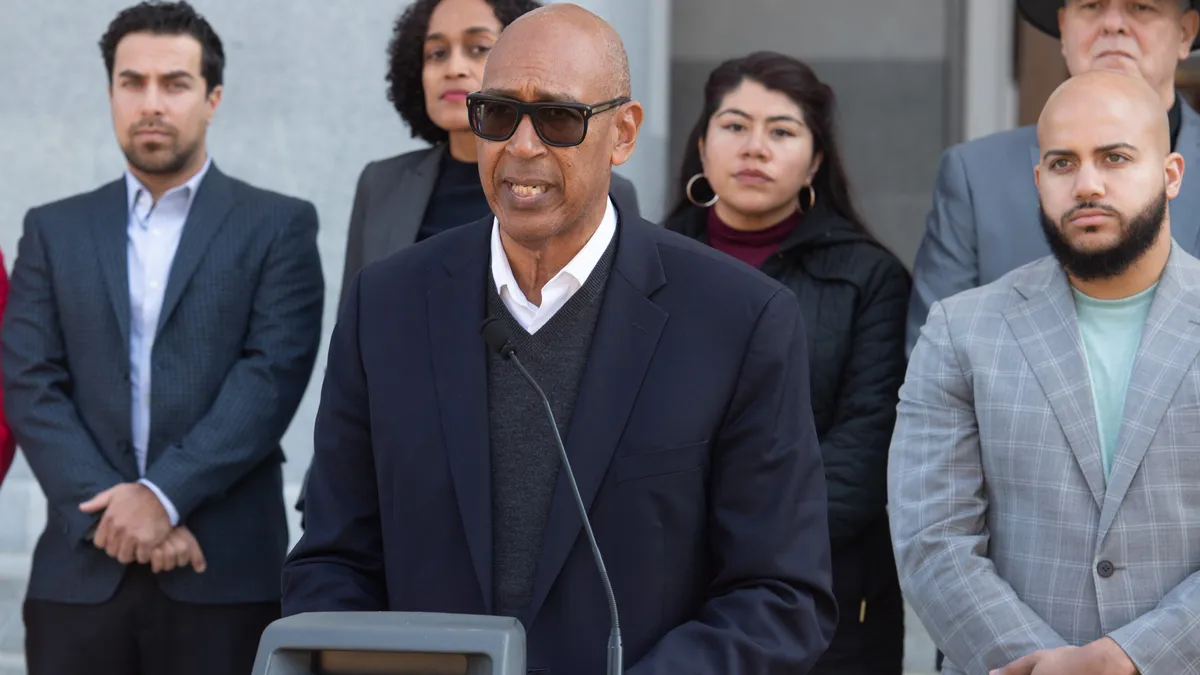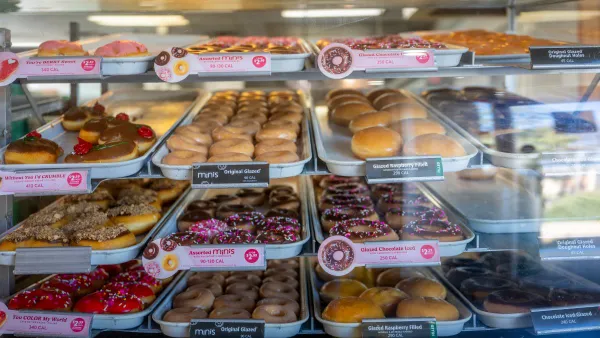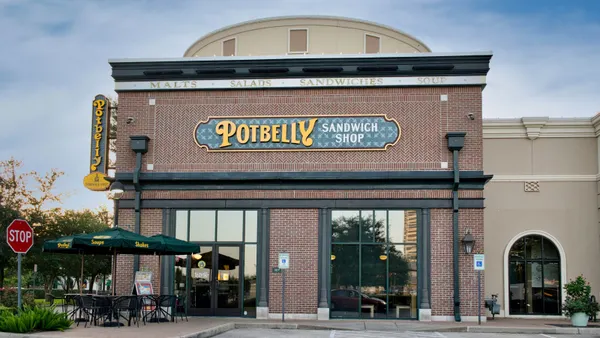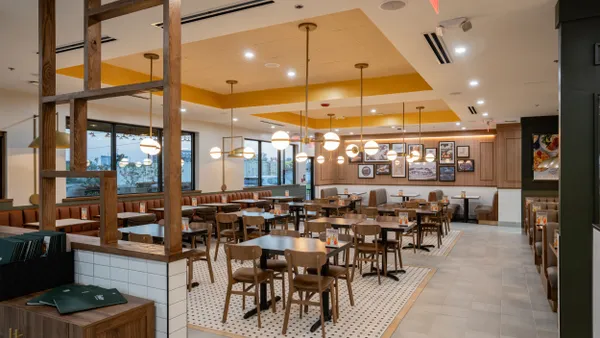Dive Brief:
- California Assembly Member Chris Holden, a Democrat from the state’s 41st district, introduced a bill that would establish joint employer liability for fast food franchisors on Feb. 16, one day before the deadline for new legislation. The bill may be heard in committee on March 19.
- The Fast Food Franchisor Responsibility Act (AB 1228) is similar to early versions of another California bill, the FAST Recovery Act (AB 257). That law, which would create a council to regulate fast food wages and working conditions, originally included language clarifying joint employer relations. This provision was stripped, however, in a flurry of last-minute changes designed to weaken AB 257 and speed its passage.
- Restaurant industry groups, including the International Franchise Association and National Restaurant Association, announced opposition to AB 1228.
Dive Insight:
AB 1228 aims to ensure greater compliance with wage and hour rules by holding franchisors jointly liable for franchisee violations. The bill argues, “franchisee-owned fast food restaurants experience systematically higher levels of noncompliance with minimum wage and overtime than do comparable establishments owned and managed by the franchisor.”
The bill would require “a fast food restaurant franchisor share with its fast food restaurant franchisee all civil legal responsibility and civil liability for the franchisee's violations of prescribed laws and orders or their implementing rules or regulations,” according to a summary of the bill available on the legislature’s website.
Joint employer rules, which define the conditions under which franchisors can be held legally liable for the actions of franchisees, are a point of sharp contention in American labor law. Successive National Labor Relations Boards strengthening or weakening joint employer rules depending on partisan control.
Holden, a former Subway franchisee, included a provision in AB 1228 enabling franchisees to sue franchisors if the terms of franchising agreements create substantial barriers to compliance with a list of laws. The bill uses the same definition of fast food chain as AB 257 —a company with at least 100 units nationwide —meaning some smaller franchisors would not be impacted by the law. Similar to AB 257, the Fast Food Franchisor Responsibility Act has already drawn strong industry criticism.
The IFA claimed holding franchisors jointly liable for violations would strip franchisees of independence.
“This bill will take away [franchisee] independence and the livelihood they have dedicated to their business, their employees, and the people they serve – making them simply employees of their brand,” Matthew Haller, CEO and president of the IFA, said in a press release.
In a statement emailed to Restaurant Dive, Sean Kennedy, EVP of public affairs for the NRA, voiced opposition to the bill.
“This bill ignores existing labor rules and instead places a punitive layer of regulations on a single segment of one industry. Adding this layer of joint liability will create chaos for current operators and employees and [make] new restaurant entrepreneurs think twice about entering the industry,” Kennedy said.
With AB 257 on hold until at least November 2024, Holden’s bill reopens the legislative front in the ongoing confrontation between fast food employers and worker organizations in California. Fast food brands and industry groups have already raised more than $13,000,000 to defeat AB 257 at the ballot box. If the joint employer proposal passes the state legislature without serious amendments, it will be a significant political victory for the Service Employees International Union and other worker groups looking to use California as a laboratory for overhauling American labor law.











